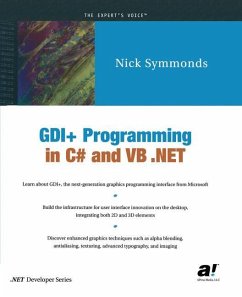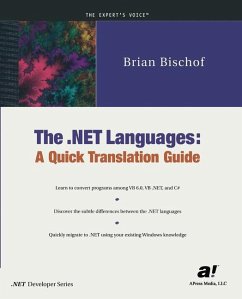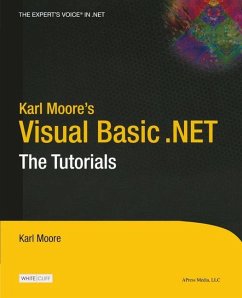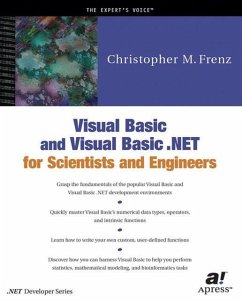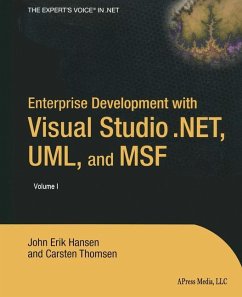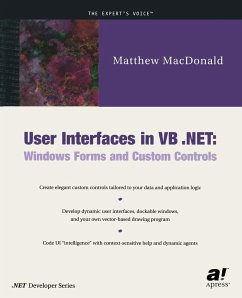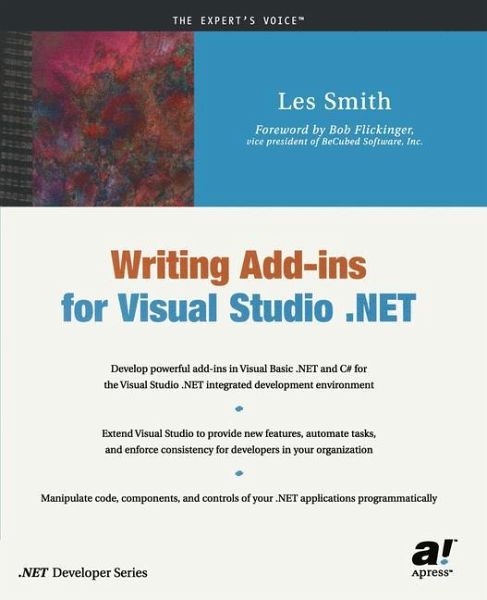
Writing Add-ins for Visual Studio .NET

PAYBACK Punkte
15 °P sammeln!
Visual Studio .NET is the most extensible development environment Microsoft has released to date. Organizations create add-ins for many purposes: to speed common tasks, to ease code reuse within an organization, and to enforce rules and consistency among developers. Effective use of add-ins can dramatically improve developer efficiency and reduce costs.Writing Add-Ins for Visual Studio .NET is designed to get add-in developers up to speed in developing ad-ins in Visual Studio .NET and to teach add-in development to developers who want to learn to write add-ins. Author Les Smith also provides e...
Visual Studio .NET is the most extensible development environment Microsoft has released to date. Organizations create add-ins for many purposes: to speed common tasks, to ease code reuse within an organization, and to enforce rules and consistency among developers. Effective use of add-ins can dramatically improve developer efficiency and reduce costs.
Writing Add-Ins for Visual Studio .NET is designed to get add-in developers up to speed in developing ad-ins in Visual Studio .NET and to teach add-in development to developers who want to learn to write add-ins. Author Les Smith also provides enough real code examples to challenge even experienced add-in developers.
Smiths book begins by teaching readers how to use the Add-In Wizard to create the basic add-in framework. From there, he covers the manipulation of code in windows and controls, and the manipulation of projects. Writing Add-Ins for Visual Studio .NET explores in detail, how to create an add-in user interface, including toolbars, toolbar buttons, and multiple-level menus, as well as how to create a user interface in the system tray. Smith also addresses the migration of add-ins from VB 6.0 to VB .NET for those developers who have previous experience in writing add-ins.
One of the great challenges that add-in developers will encounter is finding the right classes from among the 3,400 classes in the .NET Framework. Smith teaches and demonstrates use of the Visual Studio add-in object model to show readers how to use the methods and properties and respond to events in order to enhance the power of the integrated development environment (IDE).
Writing Add-Ins for Visual Studio .NET is designed to get add-in developers up to speed in developing ad-ins in Visual Studio .NET and to teach add-in development to developers who want to learn to write add-ins. Author Les Smith also provides enough real code examples to challenge even experienced add-in developers.
Smiths book begins by teaching readers how to use the Add-In Wizard to create the basic add-in framework. From there, he covers the manipulation of code in windows and controls, and the manipulation of projects. Writing Add-Ins for Visual Studio .NET explores in detail, how to create an add-in user interface, including toolbars, toolbar buttons, and multiple-level menus, as well as how to create a user interface in the system tray. Smith also addresses the migration of add-ins from VB 6.0 to VB .NET for those developers who have previous experience in writing add-ins.
One of the great challenges that add-in developers will encounter is finding the right classes from among the 3,400 classes in the .NET Framework. Smith teaches and demonstrates use of the Visual Studio add-in object model to show readers how to use the methods and properties and respond to events in order to enhance the power of the integrated development environment (IDE).





